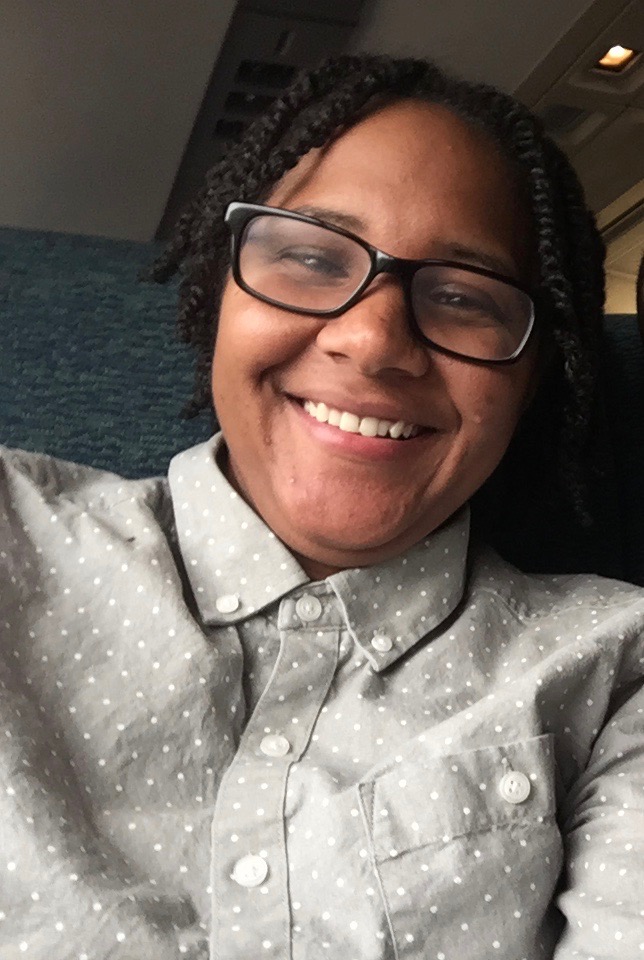Congratulations to Leticia Ridley, 2017-2018 African American Digital Humanities Scholar!
October 27, 2017

Congratulations to PhD student Leticia Ridley (MA '17) on being selected to be an African American Digital Humanities Scholar for 2017-2018!
 Congratulations to PhD student Leticia Ridley (MA '17) on being selected to be an African American Digital Humanities Scholar for 2017-2018!
Congratulations to PhD student Leticia Ridley (MA '17) on being selected to be an African American Digital Humanities Scholar for 2017-2018!
Cultivating a robust and sustainable community network for the next generation of African Americanist digital scholars is central to the mission of African American History, Culture, and Digital Humanities (AADHum) at the University of Maryland. AADHum Scholars will receive support in the form of digital training, one-on-one consultation with MITH staff, networking with a cohort of engaged scholars, mentorship in developing digital research projects, and African American history/cultural theory.
Leticia is a Ford Foundation Pre-Doctoral Fellow and a first-year doctoral student in the Theatre and Performance Studies Program at the University of Maryland (having completed her MA in Theatre and Performance Studies in May 2017). She is a scholar, playwright, and dramaturg whose research interests include Black Theatre and Performance, American Popular Culture, and Black Feminism. Broadly, Leticia’s research focuses on African American representation and performance in theatre and popular culture, with particular attention paid to the intersections of race, class, gender, and sexuality.
Leticia’s current digital project employs a Black Feminist methodology that focuses on how musical artist Beyoncé Knowles-Carter, television showrunner Shonda Rhimes, and tennis superstar Serena Williams activate dialogue and theorization in digital spaces by everyday Black women. In her current research project, Leticia conceives of the digital as a place of encounter between Black women who utilize it as a site of performance, a location of resistance, and a place where Black radical joy manifests. Leticia’s dissertation project will underscore how these women cannot be “written off” as mere entertainers, but rather it will highlight how their work must be recognized as contributing to the agency and self-defining expressions for and by Black women in America.
Congratulations, Leticia!

